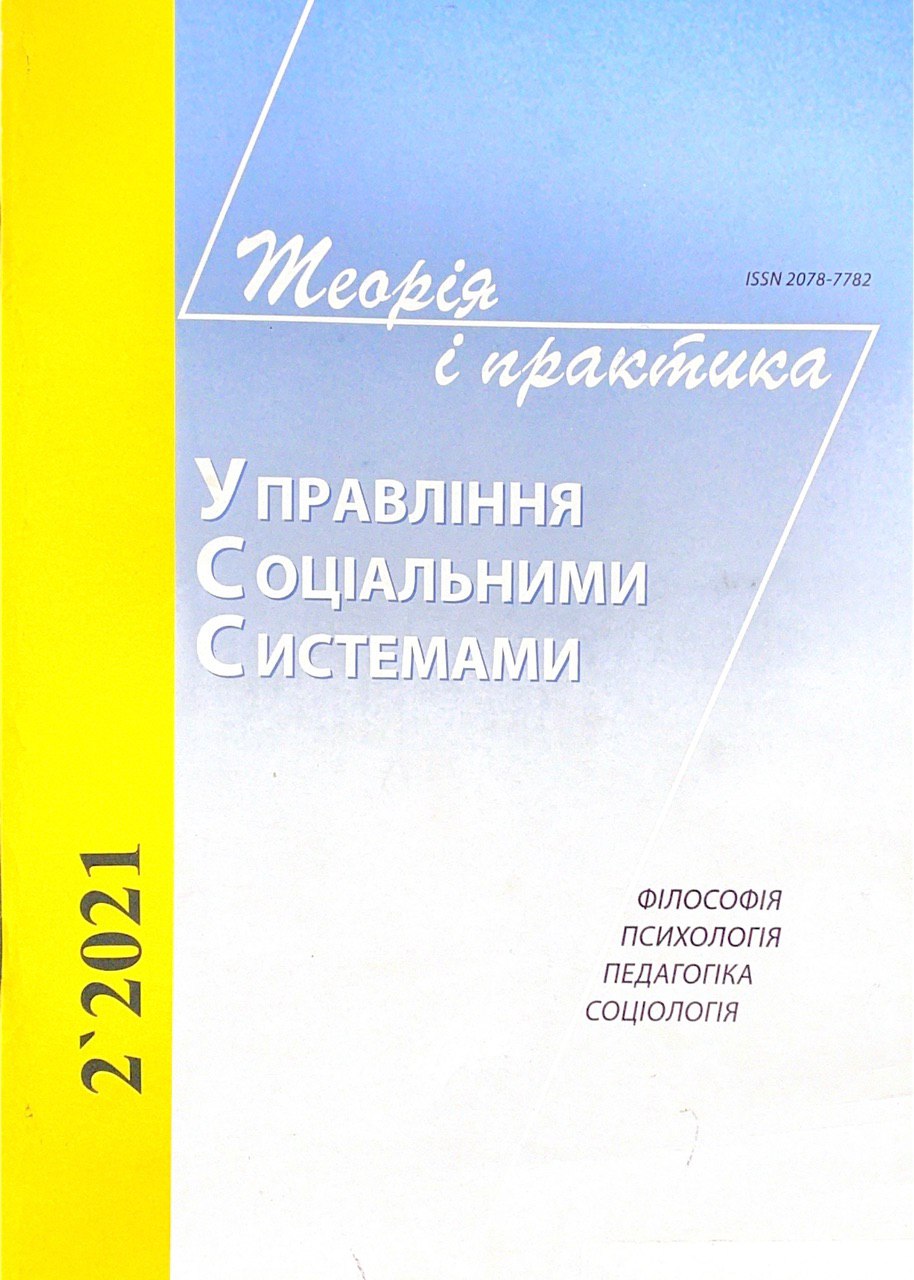ІНКЛЮЗИВНЕ ОСВІТНЄ СЕРЕДОВИЩЕ В ЗАКЛАДАХ ВИЩОЇ ОСВІТИ: ШЛЯХИ СТВОРЕННЯ
DOI:
https://doi.org/10.20998/2078-7782.2021.2.06Ключові слова:
інклюзивне навчання, інклюзивне освітнє середовище, особа з особливими освітніми потребами, нормативно-правове забезпечення, заклад вищої освіти.Анотація
У статті розкрито суть таких понять, як: “інклюзивне навчання”, “інклюзивне освітнє середовище”, “інклюзивно-ресурсний центр”, “особа з особливими освітніми потребами”; наведено основні етапи розвитку та становлення інклюзивної освіти у світовій практиці; розглянуто правову основу інклюзивного навчання в Україні та умови, за яких заклад вищої освіти набуває статусу інклюзивного; визначено суттєві зміни у нормативно-правовому забезпеченні щодо покращення інклюзивного освітнього середовища у закладах вищої освіти; сконцентровано увагу на тому, що необхідною умовою для створення інклюзивного середовища закладу вищої освіти потребує теоретична і методологічна база інклюзивної освіти, підвищення рівня підготовки викладацько-професорського складу до роботи з особами з особовими освітніми потребами, матеріально-технічна та програмно-методична забезпеченість.
Посилання
1. Cooper, T. I. (2014), “Creating an inclusive educational environment in the system of higher education in Ukraine”, Science and Education a New Dimension. Pedagogy and Psychology, no. II (14), issue: 27, pp. 20–24
2. “Admission of persons with PLO to higher education institutions”, available at: https://mon.gov.ua/ua/osvita/inklyuzivnenavchannya/vstup-osib-z-oop-do-zakladivvishoyiosviti
3. Gren, L. M. (2020), “Mechanisms of state management of vocational education of Ukraine”,: dis. dr. of science from the state. upr.: 25.00.02, Kharkiv, p. 453
4. Kachalova, T. V. (2018), “Formation of inclusive culture of higher education institution”, Scientific notes [Nizhyn State University. Nikolai Gogol]. Psychological and pedagogical sciences, no. 3, pp. 35–44
5. “The Ministry of Education and Science has developed strategic directions for the development of inclusive education until 2030”, available at: https://mon.gov.ua/ua/news/mon-rozrobilo-strategichninapryami-rozvitku-inklyuzivnoyi-osviti-do-2030-roku
6. “The Ministry of Education and Science proposes for public discussion the National Strategy for the Development of Inclusive Education for 2020-2030”, available at: https://mon.gov.ua/ua/news/mon-proponuye-dly-gromadskogoobgovorennya-nacionalnu-strategiyu-rozvitku-inklyuzivnoyi-osviti-na-2020-2030-roki
7. Poroshenko, M. A. (2019), “Inclusive education”, a textbook, Kyiv: LLC “Agency Ukraine “,p. 300
8. “On approval of the Procedure for organizing inclusive education in higher education institutions”Resolution of the Cabinet of Ministers of Ukraine
9. “On education”, Law of Ukraine dated 05.09.2017 № 2145, VIII, Government Courier dated 04.10.2017, no 186
10. Kolupaeva, А. А., Danilovichute, E. A., Litovchenko, S. V. (2012), “Professional cooperation in an inclusive educational institution”, teaching method. Way, Kyiv: Publishing Group “ASK”, p. 197
11. Statistics, available at: https://mon.gov.ua/ua/statistichni-dani
12. An all-Ukrainian online course for coaches in inclusive education is underway, available at: https://mon.gov.ua/ua/news/trivaye-vseukrayinskij-onlajn-kursdlya-treneriv-z-inklyuzivnoyi-osviti
13. Decree of the President of Ukraine “On the National Program of Vocational Rehabilitation and Employment of Persons with Disabilities for 2001 – 2005” of July 13, 2001 no. 519/2001, Government Courier, July 20, 2001, no. 127
14. Cherkashin, A. I. (2019), “Personal development of the leader in the process of educa-tion”, Theory and practice of modern psychology, Zaporozhye: ZNU, no. 5. vol. pp. 121–127
15. Bunch, G. (2010), “10 keypointsof successfülinclusion”, Autism and Developmental Disorders, no. 3, pp. 50–67
16. Hren, L. (2020), “Innovative policy of the state to improve the system of incentives for the work of lecturers in the institutions of higher education of Ukraine”, East journal of security studies, no. 6 (1), pp. 63–73, available at: https://ejss.nuczu.edu.ua/index.php/ejss/article/view/48
17. Mitchell, D. (2008), “What Really worksin Special and Inclusive Education (Usingevidence-based teaching strategies)”, London and New York: Publisned by Routledge, Taylor & FrancisGroup, p. 198
18. Pomaza-Ponomarenko, A., Hren, L. Durman, O., Bondarchuk, N., & Vorobets, V. (2020), “Management mechanisms in the context of digitization of all spheres of society”, Revista San Gregorio, no. 1(42), doi: http://dx.doi.org/10.36097/rsan.v1i42.1535, available at: http://revista.sangregorio.edu.ec/index.php/REVISTASANGREGORIO/issue/view/RSAN42/showToc
19. Wachtel, H. (2009), “Inclusive education for children with developmental problems as the actual direction of educational policy and training in Germany”, Social Pedagogy, no. 1, р. 24

##submission.downloads##
Опубліковано
Номер
Розділ
Ліцензія
Авторське право (c) 2021 ариса Грень, Андрій Черкашин, Микола Чеботарьов

Ця робота ліцензується відповідно до Creative Commons Attribution-NonCommercial-NoDerivatives 4.0 International License.
Автори, які публікуються у цьому журналі, погоджуються з наступними умовами:- Автори залишають за собою право на авторство своєї роботи та передають журналу право першої публікації цієї роботи на умовах ліцензії Creative Commons Attribution License, котра дозволяє іншим особам вільно розповсюджувати опубліковану роботу з обов'язковим посиланням на авторів оригінальної роботи та першу публікацію роботи у цьому журналі.Автори, які публікуються у цьому журналі, погоджуються з наступними умовами:
